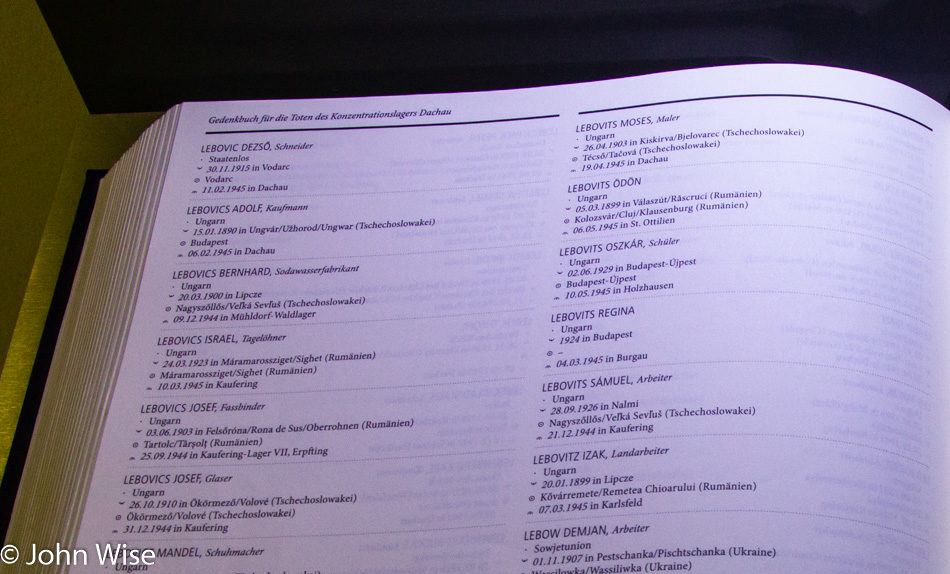
Life should be colorful and bright, a celebration of being. For some, it becomes a footnote in a register that acknowledges that darkness is able to overcome the better senses of our species. A week ago in Budapest, Hungary, while Caroline and I were enjoying a sunny day in a foreign capital where, as far as we knew, we were not under threat, we stood for a moment in the shoes of thousands of people who were killed mercilessly and died anonymously to the majority of humanity. To their families, they were the world and a great reason for persevering through the struggle wrought by hatred in the hearts of ugly, dispassionate people who would extinguish their neighbors. I looked at a small gravestone with the name Markusne Lebovits. We had learned that in Hungary, married women are often referred to by their husband’s full name with the suffix “-ne,” so this was Mrs. Markus Lebovits. I wondered for a moment who this woman was who, at roughly my age of 55 years old, was probably a mother and a grandmother. In this book, I found the names of Oszkár Lebovits, aged 16, and Regina Lebovits aged 21, both from Budapest, and can imagine that they were the children of Mrs. Lebovits. Had Regina already given birth to her first child? This book records the deaths of people who were killed in connection with the first concentration camp in Nazi Germany: Dachau.
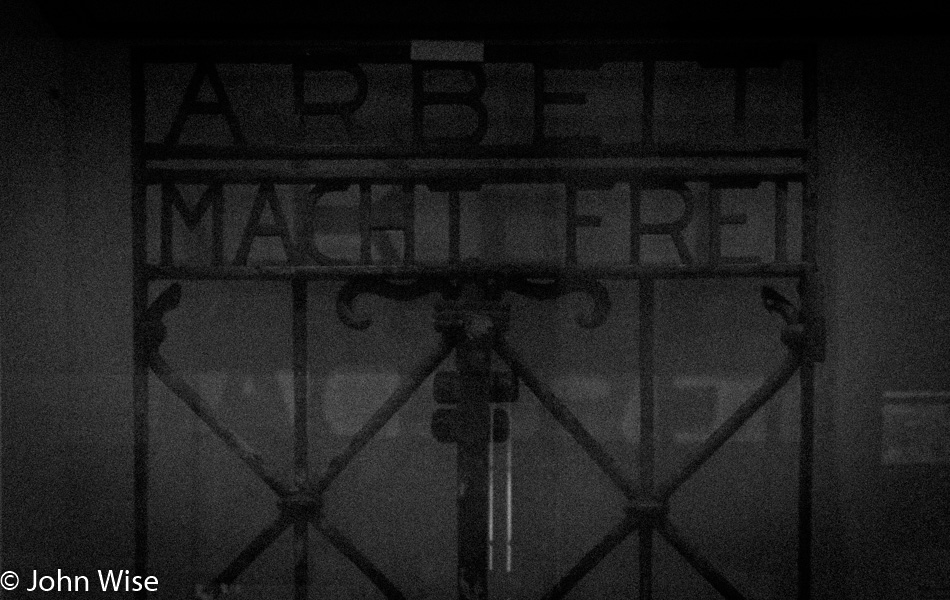
Work will make you free. This only held true here if you believed that by leaving this earth to join your maker, you would be free because, in this life, you were a tormented prisoner in every barbaric sense of the word. Opened in 1933 by Heinrich Himmler, more than 188,000 people would pass through this gate. While many would survive being worked as slaves in nearly 100 sub-camps in the area, there were 31,951 reported deaths on this soil, with thousands more not accounted for. The death count seems low until you learn that prisoners who could no longer work were often shipped off to be killed at other locations.
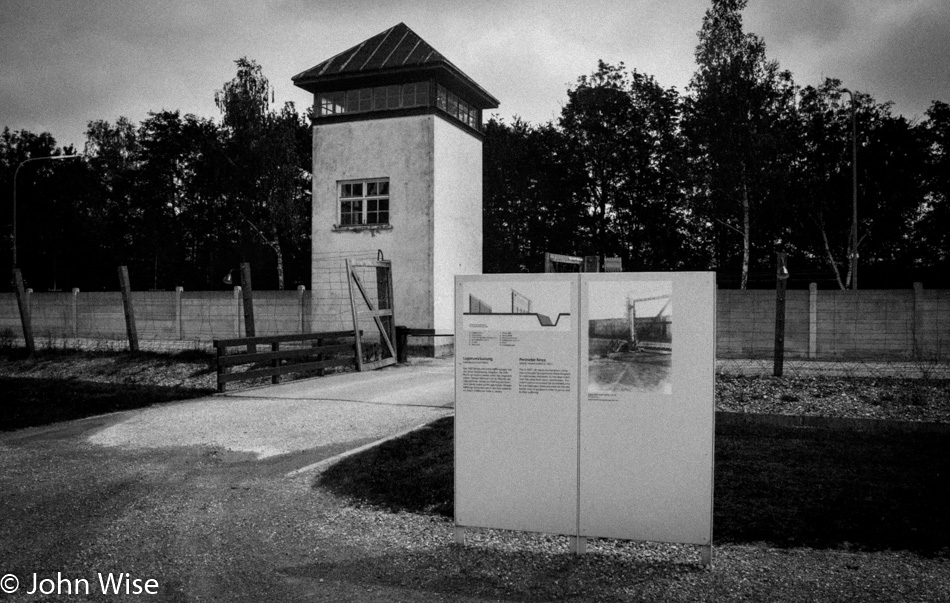
On the 29th of April, 1945, United States forces arrived and liberated the camp. Three days prior to the Allies’ arrival, Nazi personnel forced nearly 10,000 on a march out of Dachau as the camp leadership and SS did not want the prisoners to fall into anyone else’s hands. Of those marched out, over 1,000 were found in a nearby mass grave. Two days before the Americans arrived, an SS officer ordered windows and doors to be nailed shut and buildings doused in gasoline to murder another 4,000 people.
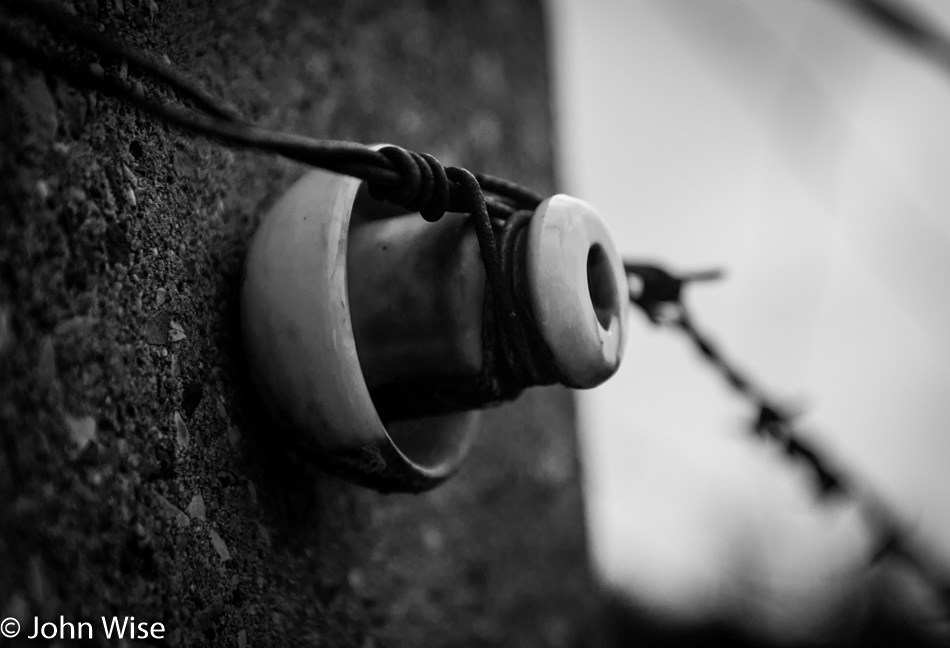
When the camp was finally liberated, 10,000 of the 30,000 survivors were deemed sick and were being treated for malnutrition and associated illnesses brought on by starvation. For a time after this point, while the death rate dropped, the damage done continued to kill people, claiming between 50 and 80 per day for some unspecified time into 1945.
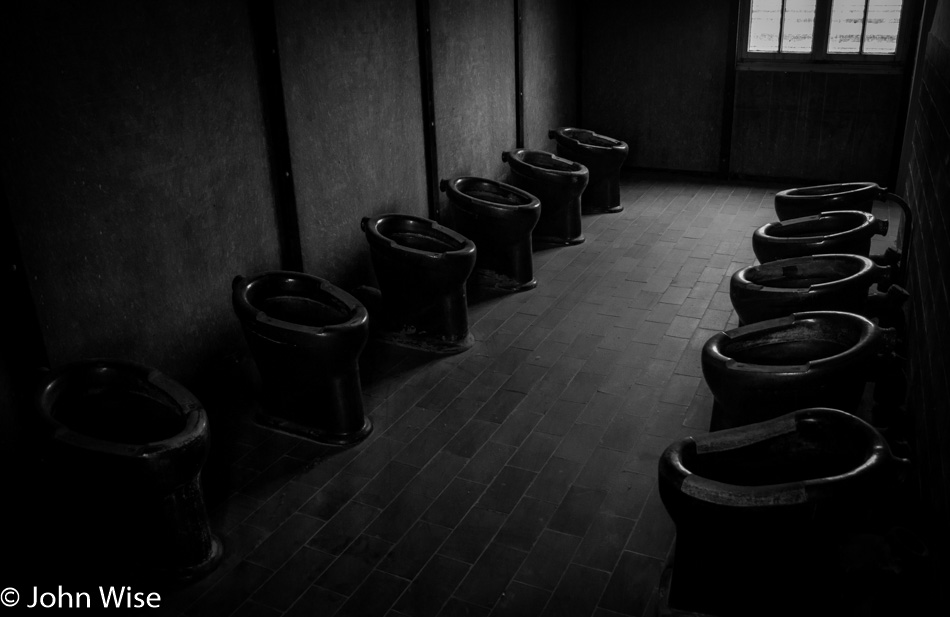
We who are alive today can hardly fathom the conditions, smells, sounds, fear, and torture that millions of people were subjected to. On the contrary, we have glamorized the horror of war and death. No different than the Romans tossing Christians to the lions, we “modern-day” humans use surrogates in the guise of the enemy, monsters, traitors, and men of evil portrayed by actors to satisfy our blood lust. So long as the victims are bad and anonymous to minimize our ability to empathize with their suffering, we may cringe at the horror, but still, we tune it in as though we need a steady supply of carnage in much the same way we require food.
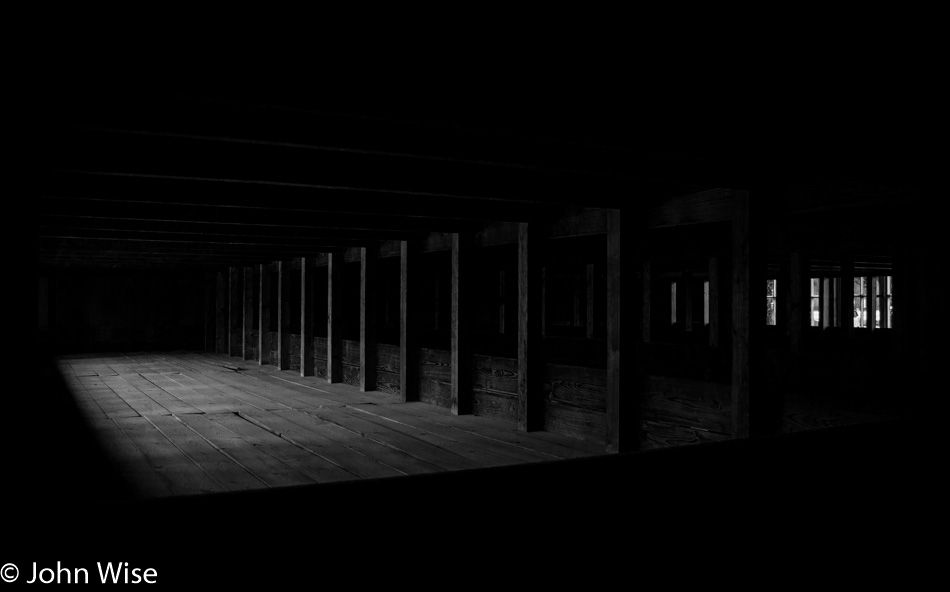
We do not have a conversation about our obsessions with violence; we relegate it to being only fantasy in the movies we watch and the video games we play. We claim as a right to freedom of expression the ability to witness men slicing the throats of other men so we can justify the usage of weapons of mass destruction we gleefully use on their cities, allowing us to celebrate the defeat of the enemies we helped create. How does a man, woman, or child live in the cramped, cold darkness, fearing the approach of their minders who, at any moment, could inflict atrocities of the most heinous effect upon them and their families? We do not know any people cowering with rotting, festering sores, starving and mad with delirium, snuggling up against us in the dark, hoping to live to see another day with an inkling of a dream left alive that someday they might see the face of someone who still loves them. In our darkest despair, where and how do we begin to find the spark that keeps us human after we witness the barbarity of our neighbor and former coworker?

“Remember How We Died Here.” Do we, as a society at large, really care how anyone dies? Is concern for those we do not know and can never know real? While we can join the collective in showing compassion for those who are anonymous, I have rarely seen an outpouring of emotion aside from what is dragged out of us individually when we’ve known someone or loved an animal. Collectively we may contribute money to a just cause and thus purchase guilt abatement, but how many of us are driven to go get our own hands dirty and spirits tarnished by helping alleviate some of the cruelty that is often part of existence? So long as we remain profligate regarding the human potential for education and are resigned to our mediocrity, we as a species may never realize our better selves. By killing the human spirit in a crematorium or by neglect and emotional abuse, we are still robbing people of the ability to find the bright colors of celebratory engagement found when we ascend into the heights of being more human than human. As long as we persist in our smaller, ugly selves, jealous of those we perceive to be different or have an unfair advantage, we remain dark and without vibrancy.
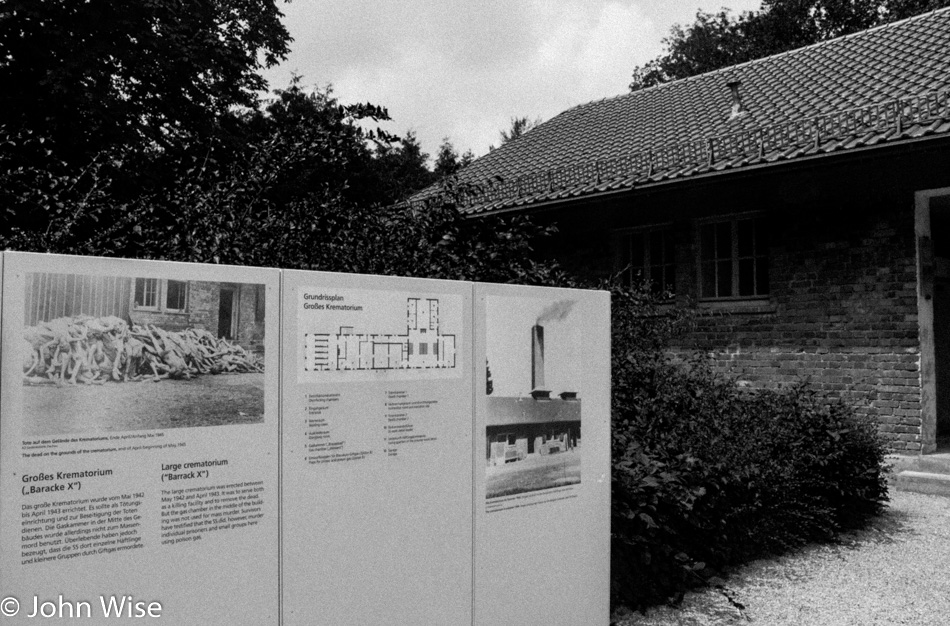
Stacks of dreams are about to be delivered to the fires of destruction, where the smoke from the furnace will fall back upon our heads, covering us with the soot of shame. Underfoot, we will bury the ash of hopes, a fertilizer that is a poison squashing our spirits as we walk upon the fallow ground where mass murder became ordained. One cannot walk the earth of Dachau, breathe its solemn air, and see the spark of happiness or find laughter.
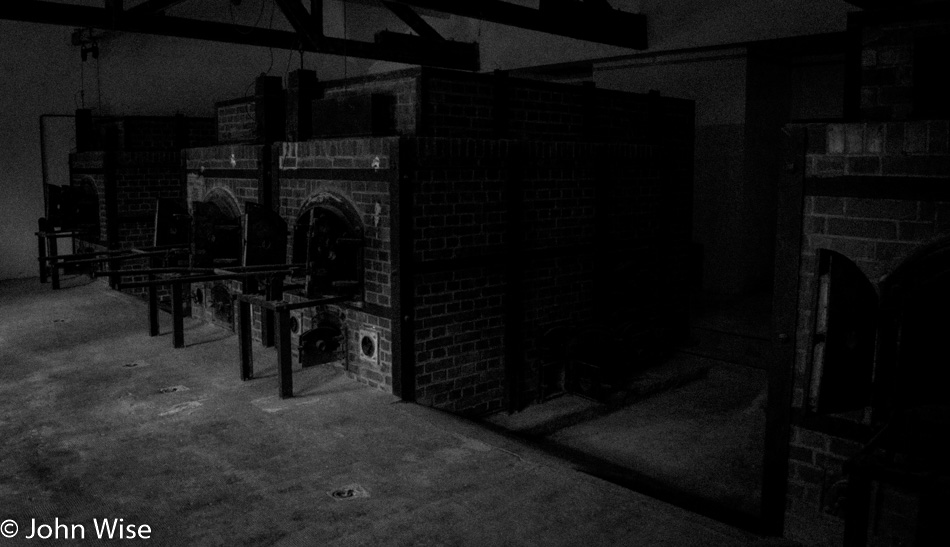
And today, we are still allowing the genocide to continue. Dachau was open for roughly 12 years and killed 31,951 people. In the United States, over the past 12 years, we’ve watched and done nothing, as approximately 15,500 children were murdered in a time of peace. On the other hand, Auschwitz only operated for five years and was responsible for the death of 1.1 million people, an unbelievable number. Then again, here in America, 96 people die every day from gun violence, and 222 are injured, so even without concentration camps and a lunatic dictator, America has witnessed the deaths and injuries of roughly 580,000 of its citizens during a similar five-year period or about half as many that were exterminated by murderous fascists, and we are powerless to effect change. And don’t begin to think America is the biggest perpetrator of this ugly behavior: worldwide, we silently witness as many as 1,000 people a day dying to gun violence or ten times as many people per year than the number that died in 12 years at a concentration camp. Why?
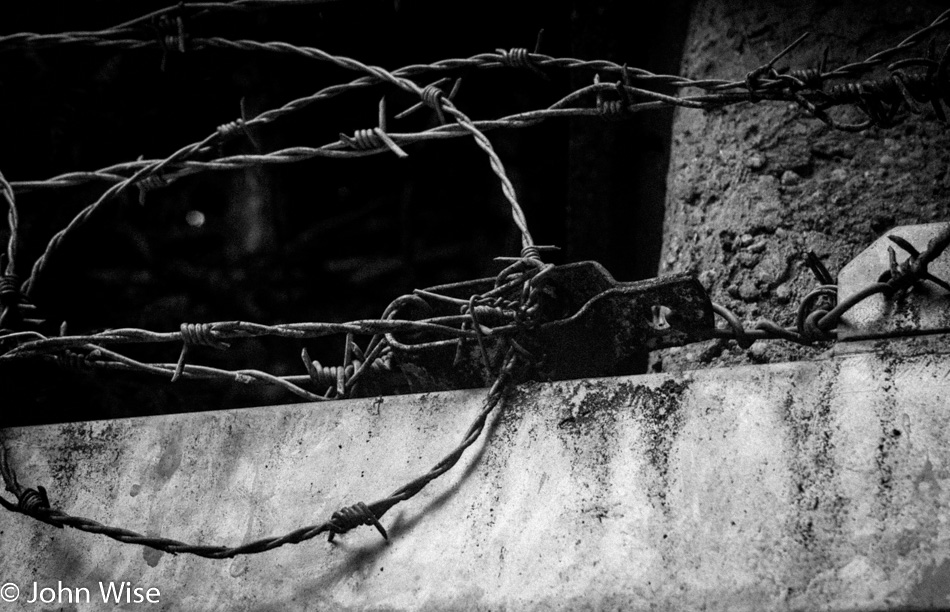
Because maybe the truth is we want blood to flow. We secretly love for others to suffer. I have no other faculty to begin to understand how inhumane and callous we are in our lack of action to abate this kind of life and liberty-threatening carnage, which appears to be accepted as a kind of normal. So while the Nazis localized the killing to specific areas where the targets were based on race, religion, politics, or education, as long as our genocide is anonymous and diffused, we can live with it. What kind of troglodytes are we?
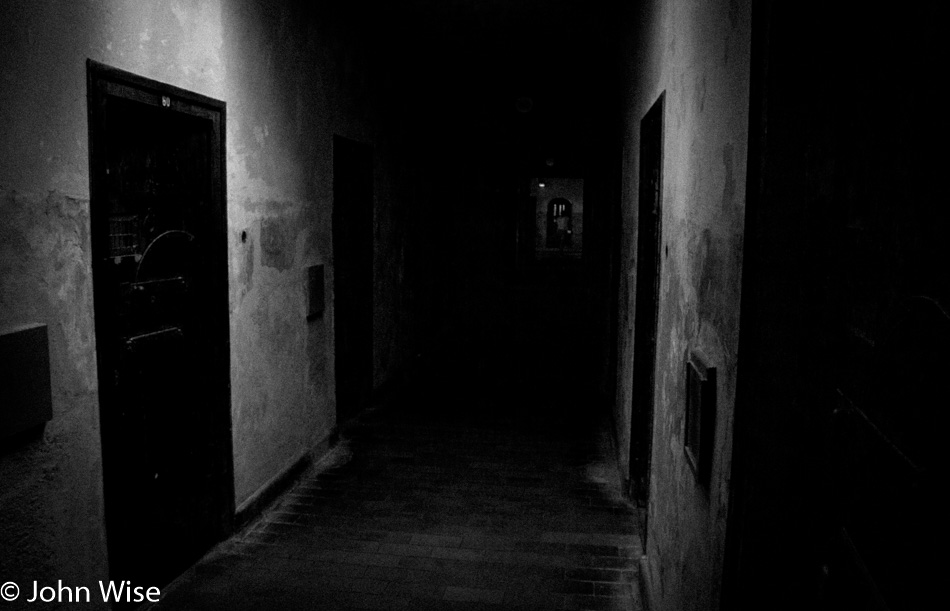
We are sick because we are afraid that we don’t know what the glue is that has us functioning as well as we are. We are afraid to stir the pot and look for personal accountability because we have been inundated with a constant barrage of mayhem that has instilled great uncertainty about the well-being of our fellow citizens. Instead of embracing and mentoring them, we throw stones and beat them with sticks to try to keep the angry horde at bay. And people have the audacity to question how the average German citizen during World War II could sit by and allow the mass murder to happen at their front door. Are we really any different?
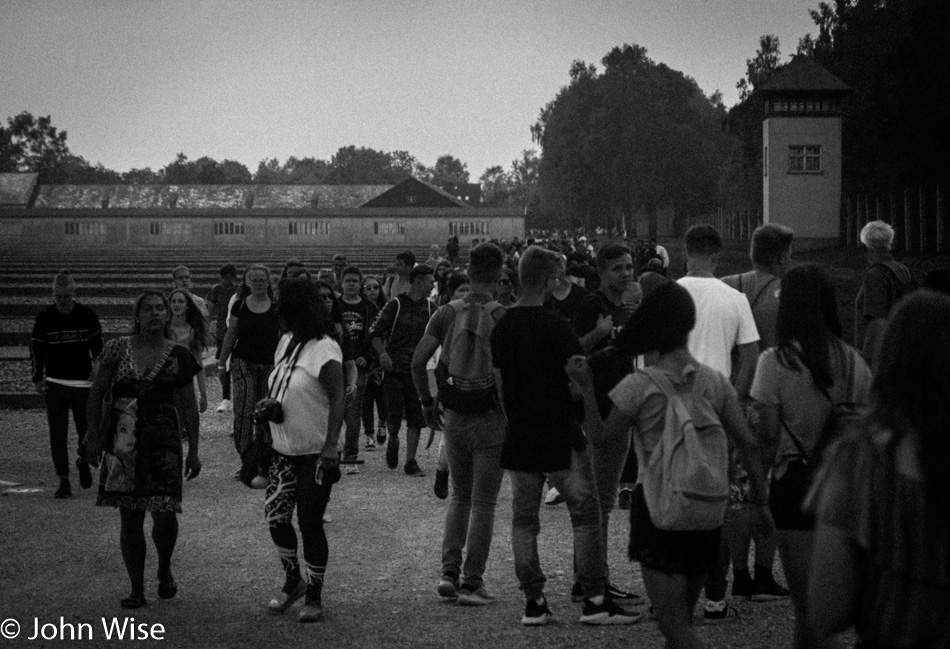
I can count roughly 100 young and old visitors in this photo of people who were visiting Dachau today. This is how many people will die today in America due to gun violence. Ten times, this many lives will be prematurely ended across our planet just on this day alone, but they are not in death camps. Instead, they are on a death planet. Leadership from all levels is not happening, though in general, order through a kind of intellectual tyranny is alive and well.
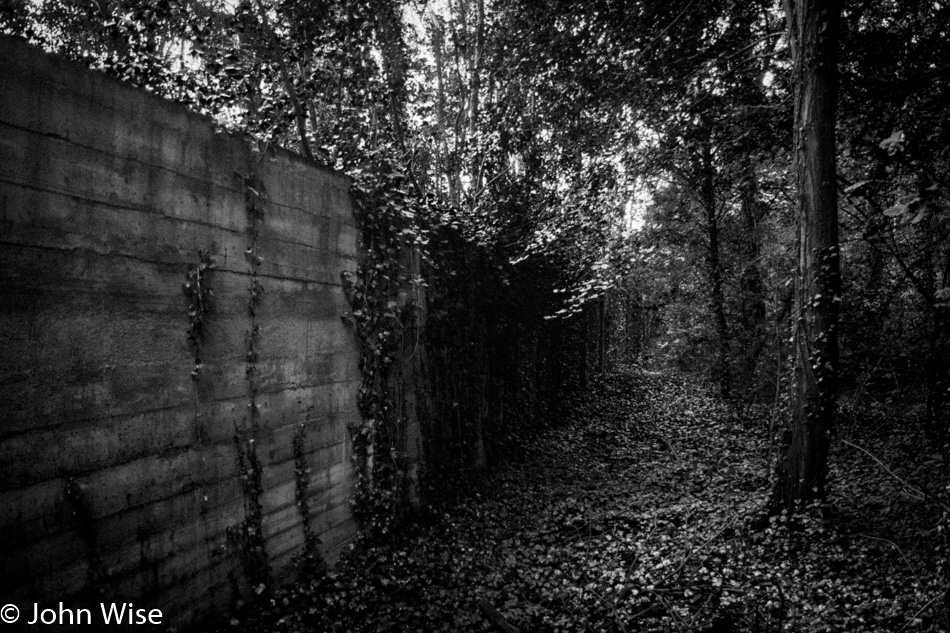
Walls crumble, and the spirit of humanity finds a way to break free. Somewhere, there’s a person who will show others a path to a larger world. That place will be alive and vibrant, full of color, laughter, and the celebration of life. We must not forget that we are vicious animals that have just barely emerged from the savanna, but we have a symbolic language and an innate ability to share enlightenment and love through communication. Truth is not best served locked away in a cage or extinguished with a bullet.
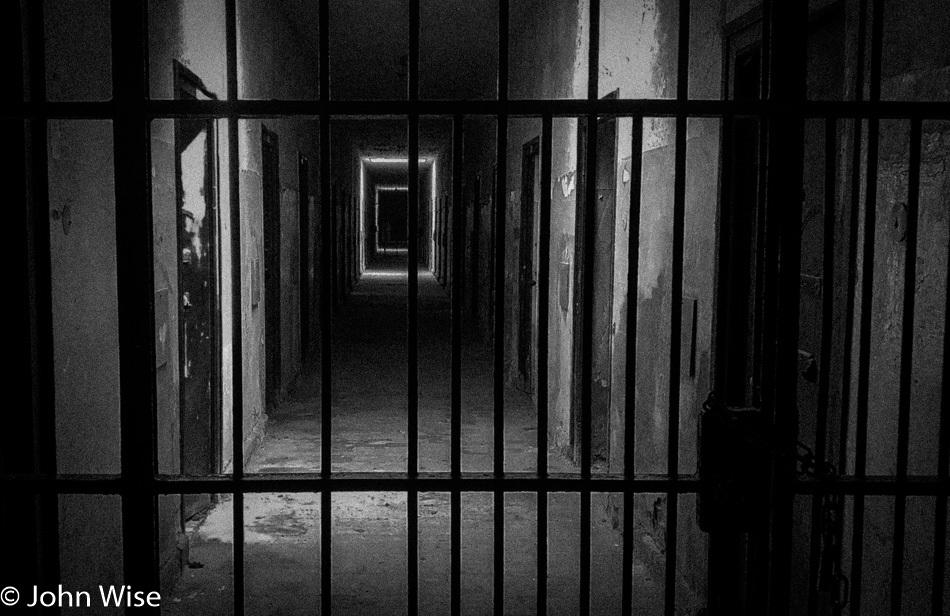
The abyss of isolation is a monster that stirs our inner fears of being left alone and without hope. Only when we stand as communities do we thrive and advance. Hate and malice towards others breed war and death, while love and compassion are the fountains of life that bring forward the new.